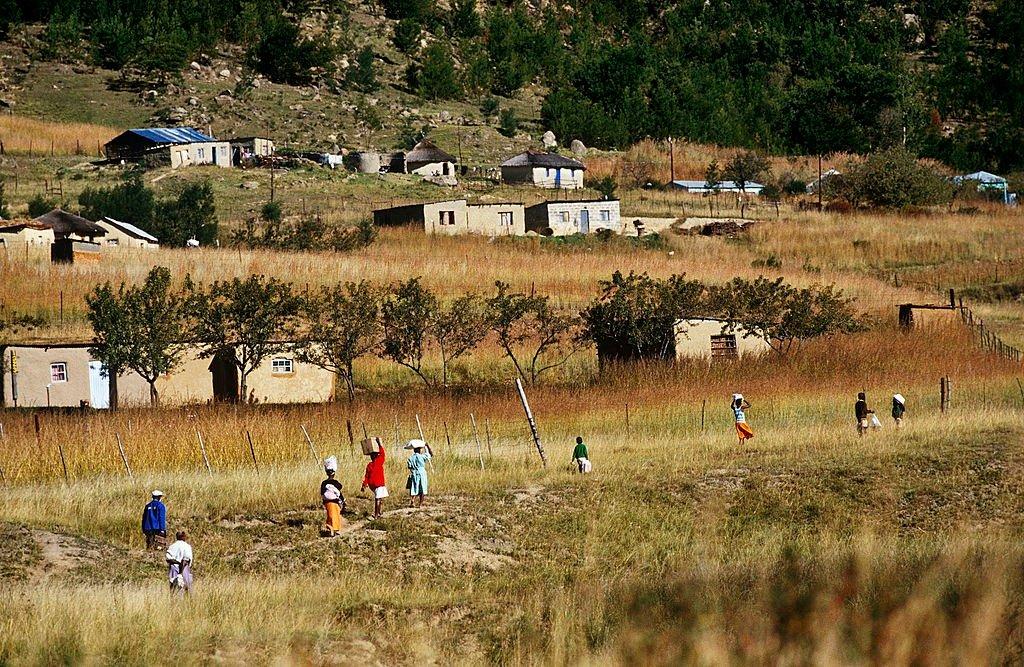Africa-Press – South-Africa. He deserves to rot in jail.”
These were the words of cultural expert and academic Dr Gugulethu Mazibuko after a 60-year-old man was jailed for life after he repeatedly tortured and raped a KwaZulu-Natal teenager who was forced to marry him.
The man had raised the defence of the traditional practice of ukuthwala, but the court rejected the argument and convicted him.
The justice department defines ukuthwala as a form of abduction involving a man and his friends or peers kidnapping a girl or young woman to compel her family to endorse marriage negotiations.
However, Mazibuko told News24 that ukuthwala was not abduction.
“Ukuthwala is when two people who are in love feel they are ready to get married and agree that on a specific date… the boy’s family pays lobola. Ukuthwala has nothing to do with forcing someone.”
She said the man’s actions were criminal and had nothing to do with ukuthwala. She added that he deserved to be punished.
“It is not acceptable. Whoever is involved in that must rot in jail. That is brutality. That man killed everything in that young girl.
“The man should disassociate ukuthwala with [his] criminal actions,” she said, adding that the practice was rare.
“I haven’t heard about it for quite a while but when people want to do selfish things, they say it is ukuthwala.”
The Conversation previously reported that the Western Cape High Court, in a 2015 ruling, “determined features of traditional ukuthwala under customary law” to include consent of both parties to the marriage, the enactment of a “pretend” kidnapping of the bride, and “strict prohibition of sex” during the abduction.
The Greytown Regional Court in KwaZulu-Natal convicted and sentenced the man to life imprisonment for rape, sexual assault and kidnapping on Monday after it heard the ordeal the teenager endured between February and July 2019.
The victim, who was 17 years old at the time, was living with her aunt when she was forced to marry the man, who was a member of the church she attended.
National Prosecuting Authority spokesperson Natasha Kara said the court heard how the teenager was rescued after her harrowing ordeal.
Regional Court prosecutor Premier Naidoo led the evidence of the victim and a friend who had been in her company at the time of the kidnapping, as well as the social worker and police officer who had rescued her.
A medical doctor testified that the victim sustained extensive injuries due to the trauma of the rape over the 10 days she was held captive.
‘He has destroyed my life’
In a victim impact statement, the girl said she had isolated herself since the incident “because I am hurt so much emotionally”.
She said in the statement:
According to police, the girl’s aunt and church elders had agreed to the so-called marriage, with the aunt accepting payment for the arrangement.
“She would allow the man to come to her house and have his way with the girl, and when the girl complained, she was reminded that traditionally she belonged to the man,” police spokesperson Constable Thenjiswa Ngcobo said.
After her concerns fell on deaf ears, she attempted to kill herself twice.
Realising she could not flee, the teenager, whose parents had long died, decided to run away from her aunt’s house.
The man, however, hired two men to track down his victim.
“She was caught and taken to the accused’s house in Greytown, where she was expected to continue with her marital duties.
“He attempted to rape her, and she fought back. When he realised that it was not going to be easy to overpower her, she was taken to Matimatolo (in KwaZulu-Natal), where she was handcuffed and raped repeatedly,” said Ngcobo.
The teenager was kept in a room for months.
Suspicious
The local community became suspicious when they heard her crying whenever the man was at home.
Police were alerted and responded swiftly, Ngcobo said.
Meanwhile, Javu Baloyi, spokesperson for the Commission for Gender Equality, welcomed the sentence.
“We have been calling for the judicial system to self-correct in that leniency was sending a wrong message out there because people would be arrested today and tomorrow, they are out on parole, and cases disappear,” Baloyi added.
Baloyi said forced marriages were still rife in several provinces.
“The sentence will serve as a message to those who force teenagers, young girls to marry them against their will, let alone raping them.”
Jason Behrens, the founder of NPO Jason’s Angels, which focuses on helping survivors of gender-based violence, described the incident as an example of a “very big challenge we face in South Africa in the fight against gender-based violence”.
“South Africa has a diverse population consisting of various races, religions and cultures.”
Behrens continued:
Bronwyn Litkie, the founder of SA Women Fight Back, said she was “utterly flabbergasted”.
“I wonder how much money the aunt was paid for her niece to marry this man,” she said.
“This should be considered human trafficking, and, in my opinion, the aunt should be on trial too. When traditional practices come into play, some men seem to think that tradition means stripping a woman of all human rights, dignity and choice.
“It is our human right to choose who we are with and who we give sexual consent to. Ukuthwala is an ancient tradition that has no place in a country riddled with GBV.”
For More News And Analysis About South-Africa Follow Africa-Press






